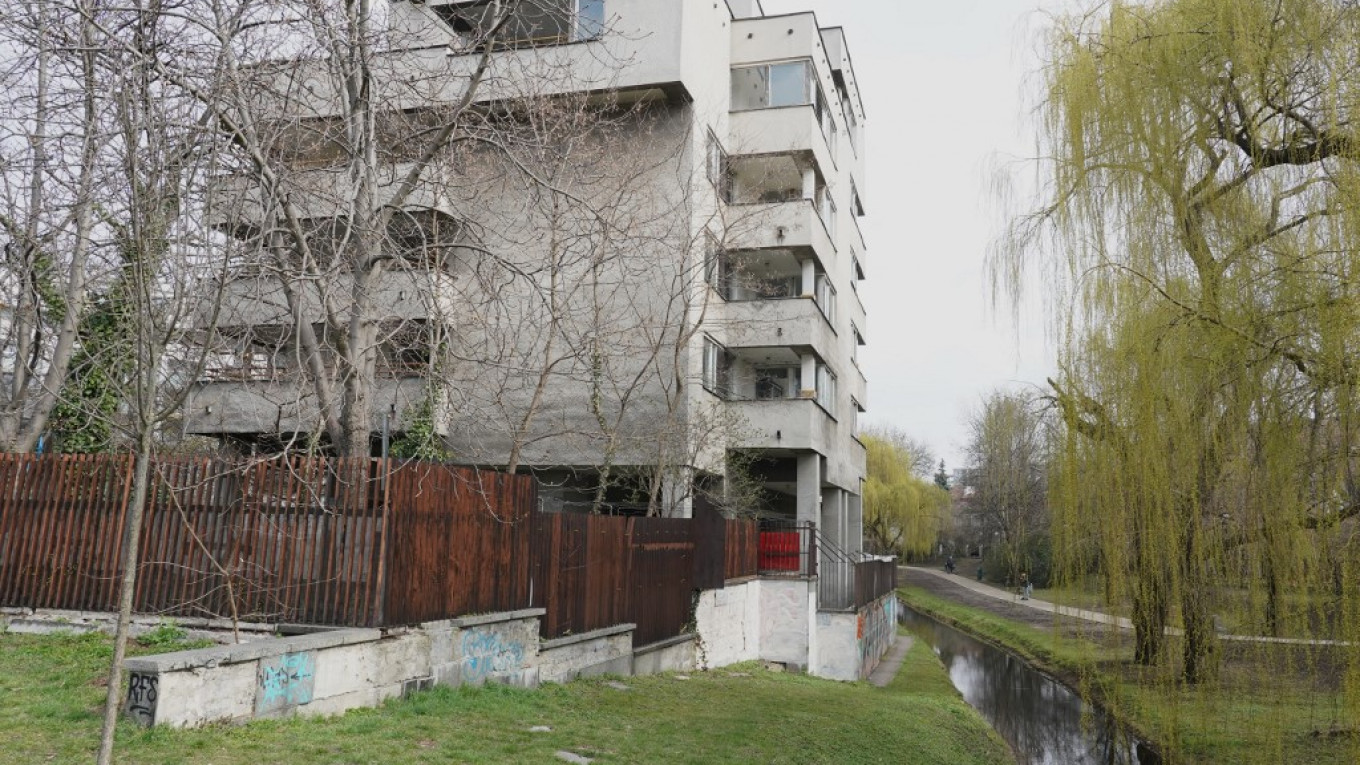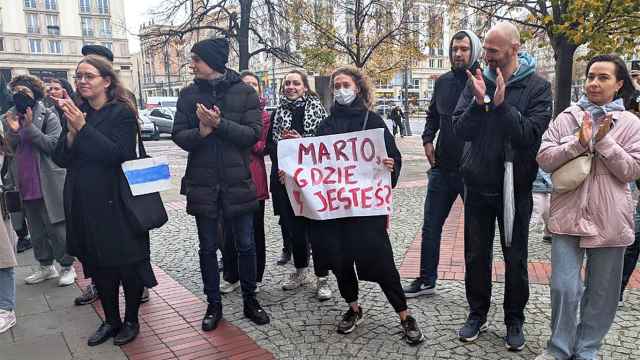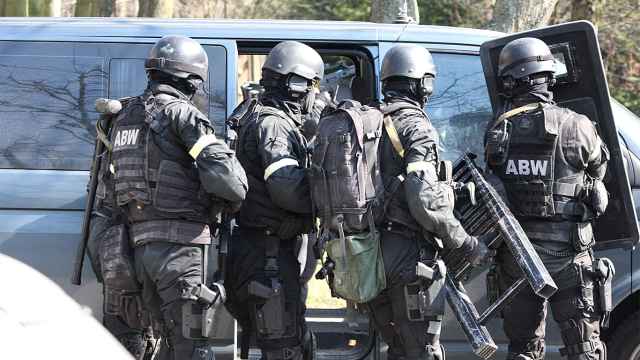The mayor of Poland's capital on Monday took control of a former Russian diplomatic site, dubbed the "spy nest" and at the center of a bilateral dispute, for Ukraine's use.
"I'm glad that in such a symbolic way we can show that Warsaw is helping our Ukrainian friends," mayor Rafal Trzaskowski told reporters.
"We've taken back the so-called 'spy nest' and want to hand it over to our Ukrainian guests," he added using a local nickname for the building, or "Szpiegowo" in Polish.
He entered the premises with a bailiff and Ukraine's ambassador to Poland. A Russian diplomat also present at the scene protested against the move.
Boasting dozens of apartments and 10 floors, the building built in the 1970s in the capital's south was once used by Soviet diplomats, followed by the Russian embassy.
Practically abandoned since the 1990s, the site is now run down and the subject of a legal dispute between Poland and Russia, with each side claiming ownership.
The apartments were built under a land swap agreement between Poland and the Soviet Union in 1974, which saw Moscow receive nine new properties in Warsaw.
The Soviet side was supposed to provide Poland with something equivalent in Moscow but that never materialized.
In 2008, Warsaw terminated the agreement and demanded the building's return.
A Polish court ordered Russia to comply in 2016, also ruling that it must compensate Poland to the tune of 7.8 million zloty (1.7 million euros, $1.8 million) for occupying the grounds illegally.
Moscow has refused to follow through.
Andrii Deshchytsia, Ukraine's ambassador to Poland, said the site "will certainly serve Ukraine and Ukrainians."
"There might be a school, or perhaps a kindergarten or apartments," he told reporters, adding, "We want to do it legally, not like the Russians."
"We don't want to occupy anything before it's legally transferred over."
A Message from The Moscow Times:
Dear readers,
We are facing unprecedented challenges. Russia's Prosecutor General's Office has designated The Moscow Times as an "undesirable" organization, criminalizing our work and putting our staff at risk of prosecution. This follows our earlier unjust labeling as a "foreign agent."
These actions are direct attempts to silence independent journalism in Russia. The authorities claim our work "discredits the decisions of the Russian leadership." We see things differently: we strive to provide accurate, unbiased reporting on Russia.
We, the journalists of The Moscow Times, refuse to be silenced. But to continue our work, we need your help.
Your support, no matter how small, makes a world of difference. If you can, please support us monthly starting from just $2. It's quick to set up, and every contribution makes a significant impact.
By supporting The Moscow Times, you're defending open, independent journalism in the face of repression. Thank you for standing with us.
Remind me later.






